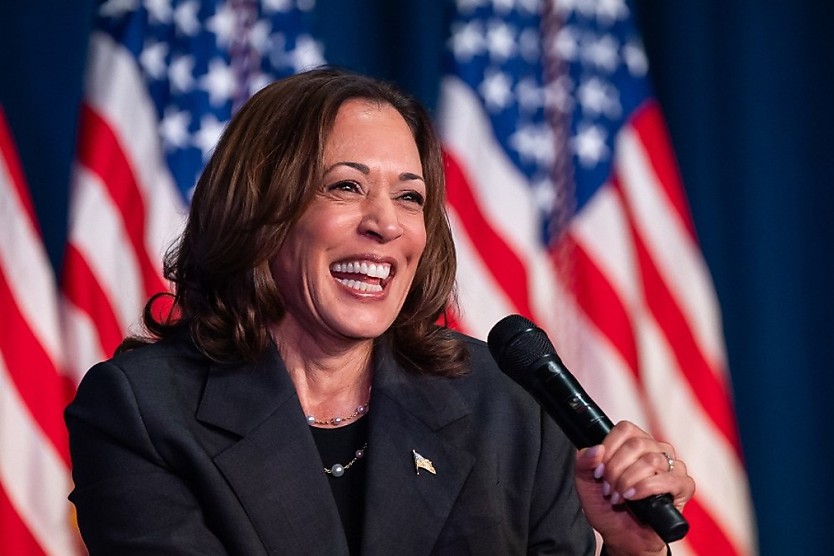Kamala Harris’ huge fundraising haul proves need to invest in diversity
SHARE THIS ARTICLE

The extraordinary volume of money raised in the last two days for the campaign to elect Kamala Harris as the next president of the United States shows, one senior consultant argues, how investing in diversity can drive investment.
On Monday (22 July) morning, Australians woke up to the news that President Joe Biden had decided to end his campaign for re-election, following weeks of pressure from Democratic Party elected officials and donors after his calamitous performance at the first debate with his predecessor, Donald Trump.
His announcement was accompanied by a strong endorsement for his vice president, Kamala Harris, to assume his place as the party’s nominee for the presidency in November’s election. As of the time of writing this story, Harris has secured enough party delegates to officially clinch the nomination at the Democratic National Convention, being held in mid-August.
In the 24-hour period since Vice President Harris became the presumptive Democratic nominee, a tsunami of big and small donations flooded her campaign, with $81 million being raised, representing the largest 24-hour sum reported by either the Democrats or Republicans in the 2024 campaign, thus far.
Moreover, and as reported by the Associated Press, Democratic super PAC (political action committee) Future Forward announced it had secured $150 million in commitments over the same period from donors who were “previously stalled, uncertain or uncommitted”.
Collectively, that would represent a near-quarter billion in fundraising for Harris’ election campaign in a single day.
In commentary provided to HR Leader, TDC global head of marketing and senior consultant Angelica Hunt said Harris’ ascension to the top of the ticket for the Democratic Party is “irrefutable” proof that “the sentiment and case for diverse representation is growing”.
“This historic moment underscores the progress that has been made and will very likely flow into the corporate arena, too,” she said.
Harris, of course, is not only the first woman to win the vice presidency in America’s history – she is also the first South Asian person to assume either the presidency or vice presidency and the second person of colour to serve in the White House, following Barack Obama’s presidency between 2009 and 2016.
Hunt – who, as a consultant, works with partners of TDC Global to drive impact across DEI efforts in branding, events, and strategy – reflected that the “stunning surge in donations” in recent days by the Democrats “indicates the unprecedented support and engagement for diverse leadership, something that has been questioned of late”, particularly in the US.
“This wave of support conveys that diversity is a powerful driver of investment, and businesses should take notice,” she said.
“Just as diverse political leadership can energise a nation; diverse business leadership can invigorate an organisation.”
This is not, Hunt said, just a political phenomenon: “It’s a business imperative.”
“Businesses need to understand the inherent value of diversity in leadership roles, just as the political arena has.”
According to a recent report published by TDC – DEI Deep Dive: APAC’s Path Forward Research – the main driver of DEI in Australian workplaces is compliance or checking boxes, Hunt noted.
“However, the potential of diverse leadership goes far beyond that. It brings fresh perspectives, drives innovation, and better reflects the communities we serve,” she said.
“The initial reaction of questioning readiness for a female president highlights the very issue we are tackling.”
In her business research, Hunt continued, “we found that 41 per cent of Australian workers believed that societal attitudes are a key barrier to DEI implementation”.
“Those who question the readiness for diverse leadership,” she outlined, “often unintentionally point out these systemic biases that exist”.
“Change can be uncomfortable, but it’s necessary.”
“Societal progress often faces initial resistance, but time and again, embracing diversity has proven to lead to richer perspectives, stronger solutions, and a more connected public.”
Jerome Doraisamy is the managing editor of Momentum Media’s professional services suite, encompassing Lawyers Weekly, HR Leader, Accountants Daily, and Accounting Times. He has worked as a journalist and podcast host at Momentum Media since February 2018. Jerome is also the author of The Wellness Doctrines book series, an admitted solicitor in NSW, and a board director of the Minds Count Foundation.

